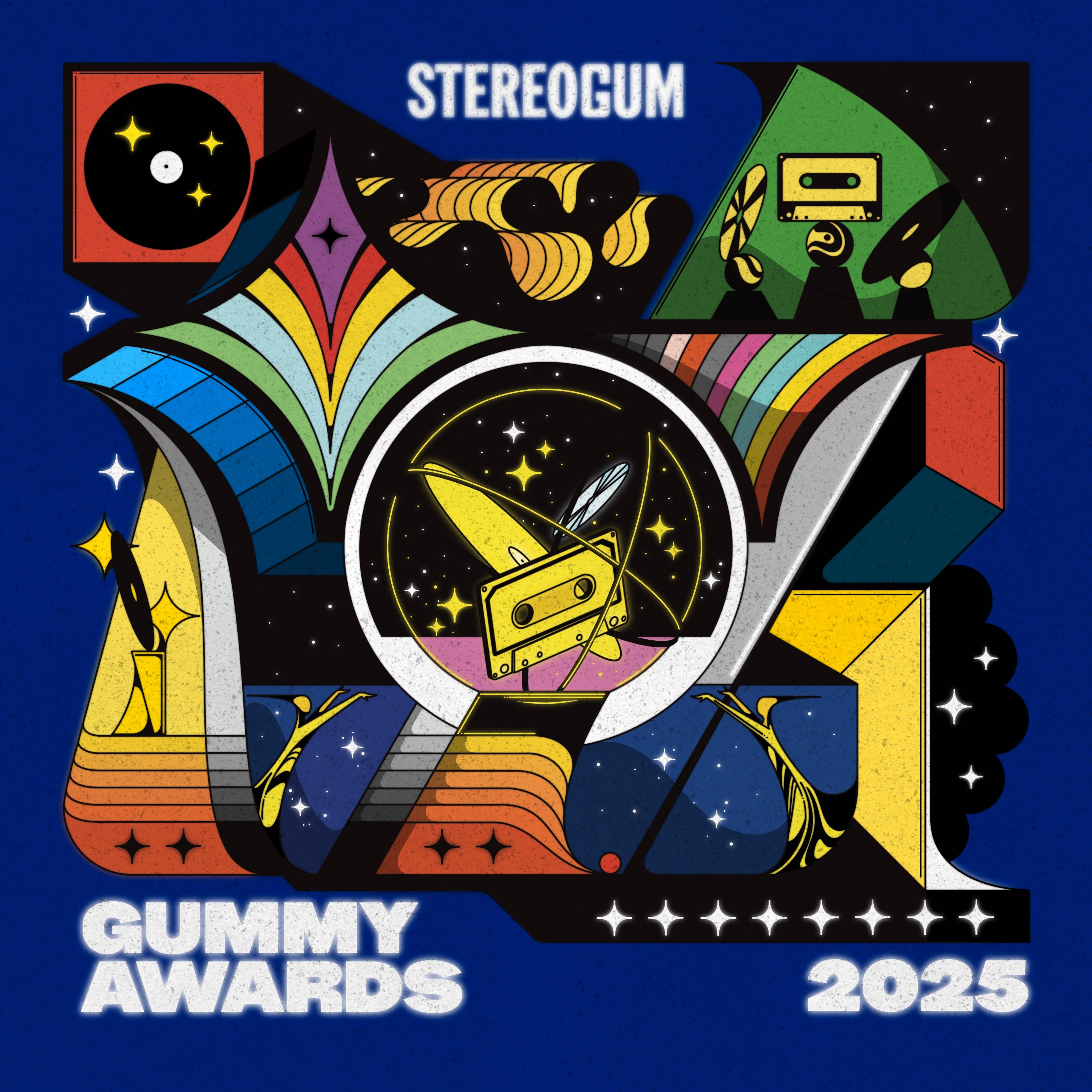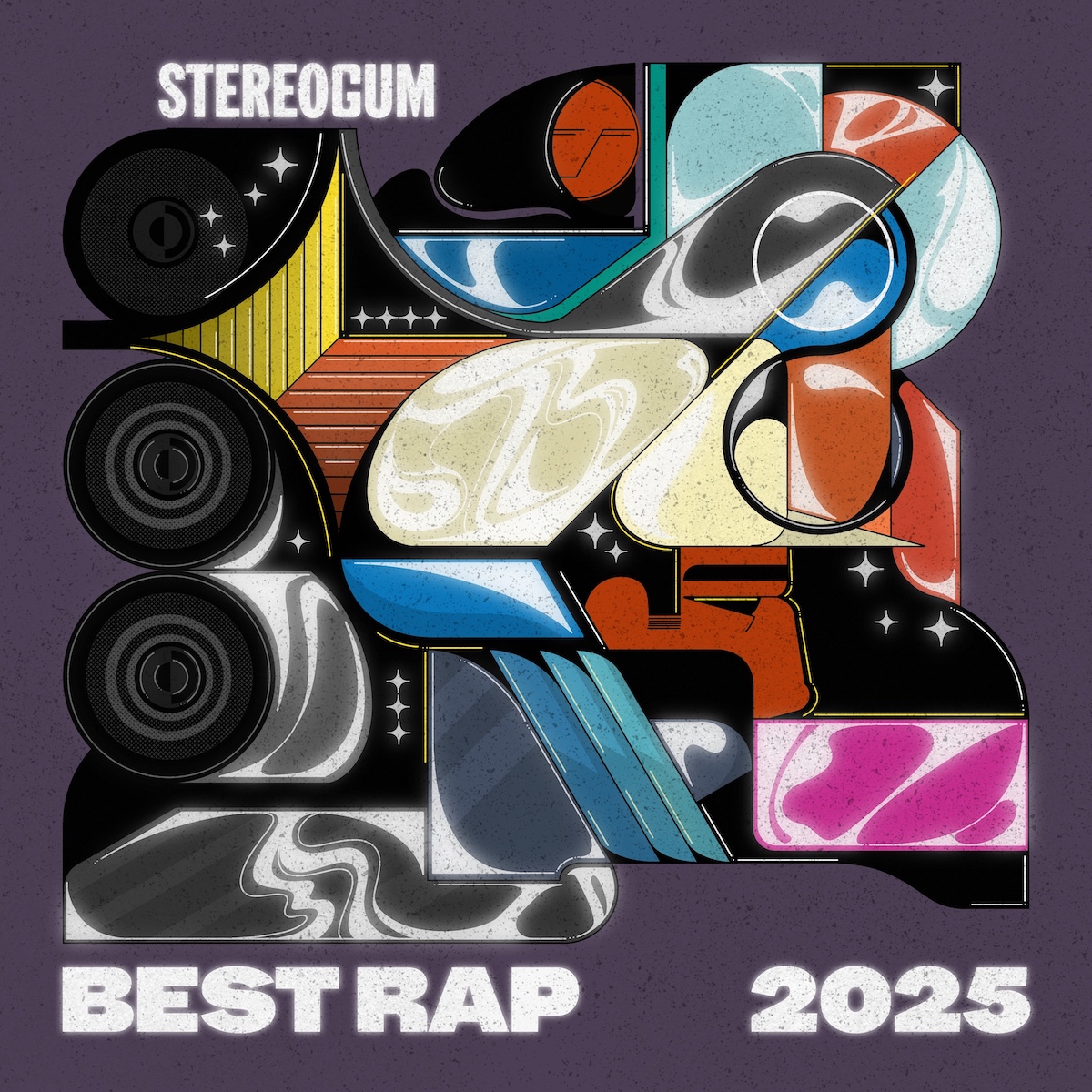Six years ago, when I was a Pitchfork News writer, I wrote Chuck Berry's obituary. Berry had collapsed onstage in Chicago, and my editor wanted me to have something ready in case whatever he was suffering from proved to be fatal. That's something that many news organizations do, and it always seems morbid, like we're all vultures just waiting for the moment to dive in and start picking flesh off of bones. But Chuck Berry didn't die. He was back onstage in no time. A year later, my grandmother, who was about to turn 90, saw Berry play at Blueberry Hill, his St. Louis restaurant. She had a great time.
In the past few years, when towering musical figures have died, I've written columns in which I pick 20 great moments from their careers and spotlight them. The idea, I suppose, is that you might get as much of an understanding of the individual from these little random snapshots as you might from a more complete piece about the life and times of a just-departed icon. I've done pieces like this for Adam Yauch, Lou Reed, David Bowie, Prince, Leonard Cohen, and George Michael. All of those deaths were shocking, and even in the case of the aging Leonard Cohen, they seemed to come too soon. But Chuck Berry's death isn't shocking. He was 90. 90 is old. If anything, it's shocking that he lived so long, watching his creation take over the world and branch off in a million different directions. In that same way, it remains amazing that Jerry Lee Lewis and Little Richard are still alive. These people are living connectors to an age before youth-driven popular culture really even existed -- reminders that history is closer than you think.
Berry was, of course, a complicated man, one who did plenty of fucked-up things in his lifetime. He was also a superhero. Berry had as much claim as anyone else to the invention of rock 'n' roll music. Popular music is a continuum, one that's continually moving forward, every new innovator pulling sounds and ideas from those who came before. And Berry certainly learned from blues and swing and country. But just as much as "Rocket 88," Berry's opening riff-flurry at the beginning of "Roll Over Beethoven" is a big-bang moment for all the music that would follow. And while his creative peak wasn't long -- really just a few years, getting cut short when he got shipped off to prison -- it would leave a tremendous, smoking impact crater in everything that would follow. And then Berry kept living a fascinating life for decades afterward. Let's take a look at it.
1. THE DUCK WALK
Rock stars didn't exist when Chuck Berry became a rock star, so he had to invent the job on the fly. Berry didn't just help invent a musical language for rock 'n' roll; he helped invent a physical, visual language for it, too. The duck walk, ridiculous and flamboyant and weirdly strenuous even when he made it look effortless, has to be one of the all-time great signature stage moves, on par with the Moonwalk and the James Brown splits and the Hammer dance. It's a great visual parallel for that runaway-train riffing he'd be doing while playing it. And it didn't look anything like an actual duck walking. Ducks don't walk like that.
[videoembed size="full_width" alignment="center"][/videoembed]
2. "MY DING-A-LING"
Chuck Berry scored exactly one #1 hit in his entire career: A supremely goofy novelty song about his dick. It arrived in 1972, a good decade and a half after Berry's peak. And since it made money, Berry continued to regard it as one of his greatest moments, as an achievement every bit the equal to "Johnny B. Goode," until the end of his days. Serious rock fans regard the whole episode with absolute disgust, but I honestly think it's sort of perfect. Like: Imagine if, in 2017, Melle Mel scored an out-of-nowhere global smash that consisted entirely of fart jokes. I think that would be great!
[videoembed size="full_width" alignment="center"][/videoembed]
3. "SEND MORE CHUCK BERRY"
In 1977, NASA launched the Voyager 1 probe, an unmanned craft on a mission way beyond the solar system. It included something called the "Golden Record," a message to any aliens who might happen to find it. It was full of images of human achievement, and it included a few pieces of music, including works from Mozart and Bach, various pieces of folk music, and Chuck Berry's "Johnny B. Goode." The Saturday Night Live joke about that is perfect. It's from a Weekend Update in the show's third season. In that SNL bit, the joke is that aliens find the Golden Record and respond to Earth:
They've sent us a message that actually proves it. It may be just four simple words, but it is the first positive proof that other intelligent beings inhabit the universe. The four words that came to us from outer space -- the four words that will appear on the cover of Time Magazine next week -- are:
And then Steve Martin held up the magazine, and it said, in big letters, "send more Chuck Berry." This has to be the only time, in its early years, that the SNL writers included an affectionate joke in Weekend Update.
4. THE LETTER FROM CARL SAGAN
Carl Sagan was the one in charge of putting together the Golden Record. Alan Lomax, the famous folklore expert, objected to "Johnny B. Goode" being on there, claiming that it was adolescent. Sagan famously responded, "There are a lot of adolescents on the planet." Here's a letter that Sagan sent to Berry in 1986:
This is the letter Carl Sagan wrote to Chuck Berry for his 60th birthday. Science and art, together bound for the stars. RIP, Chuck. pic.twitter.com/ZS8NrYAynI
— March for ScienceLDN (@LDNsciencemarch) March 19, 2017
My guess is that Berry didn't give two fucks about this, but I do like the idea of these two very different galactic geniuses interacting.
5. THE PULP FICTION DANCE SCENE
The single most iconic scene that the movies gave us in the '90s might very well be Mia Wallace and Vincent Vega winning the Jackrabbit Slim's twist contest in Pulp Fiction. It's a fascinating piece of pure cinema, Uma Thurman and John Travolta magnetically warming up to each other wordlessly, using this little anachronistic dance to learn animal things about each other. And Quentin Tarantino, maybe our greatest pop-music soundtrack-selecter, used a Berry deep cut, one that he wrote in prison, to score the moment. It fit perfectly.
6. HAIL! HAIL! ROCK 'N' ROLL
Once, Keith Richards found Chuck Berry's guitar backstage and started playing it. Berry walked in on what was happening and immediately punched Richards right in his face. Richards still acted as musical director for a huge 1986 all-star Chuck Berry tribute, which doubled as Berry's 60th birthday party. The director Taylor Hackford filmed the show and turned it into the movie Hail! Hail! Rock 'N' Roll. It's not the best live-concert movie you'll ever see. (That's Stop Making Sense.) It's not even the best to feature Richards. (That's Gimme Shelter.) But it's a pretty amazing testament to what Berry could do even after he'd already survived many of his peers. I love this scene of him riding onstage in the back of a cherry-red convertible, playing "School Days."
https://youtube.com/watch?v=4_FkGV78nm8
7. JAZZ ON A SUMMER'S DAY
Another iconic Berry concert-film performance -- playing "Sweet Little Sixteen" at the 1958 Newport Jazz Festival, with a bunch of jazz musicians, as documented in the 1960 movie Jazz On A Summer's Day. Not long ago, Keith Richards told Rolling Stone about watching Berry play in that movie. As he saw it, the jazz guys didn't take Berry seriously: "They were brilliant -- guys like Jo Jones on drums and Jack Teagarden on trombone -- but they had that jazz attitude cats put on sometimes: "Ooh... this rock & roll..." To my eyes, it's more that they were attempting to do what they could with a form of music that they didn't quite understand. Either way, it's a fascinating styles clash, and Berry walked away from it unscathed:
8. THE WHITE HOUSE AND PRISON
In 1979, Chuck Berry played for President Jimmy Carter at the White House. Three days afterward, Berry was sentenced to 120 days in prison for tax evasion. Berry was a prickly personality, and he kept getting into legal trouble, even in his later years. There's a reason why nobody has made a reverent Chuck Berry biopic. Even as the world rushed to canonize him, he made things difficult, and it's hard to come up with a better illustration of that dichotomy.
9. "THAT LITTLE COLORED BOY"
In his 1998 memoir, Berry wrote that the line on "Johnny B. Goode" "that little country boy sure could play" had originally been "that little colored boy." He changed it to keep white fans happy, thinking, probably correctly, that a song that directly acknowledged its writer's blackness would have a tough time finding airplay. For a similar reason, he gave a songwriting credit to the white disc jockey Alan Freed, who didn't have a thing to do with writing the song. During a deeply fucked up period of our nation's history, even a genius like Berry, with an undeniable hit like "Johnny B. Goode," had to make compromises so that the song could get out there. It sucks that he had to make them. We're lucky he did.
10. THE PUNK REVIEWS
This one's been making the online rounds for the past couple of days, and it's just awesome. In 1980, someone at the punk zine Jet Lag interviewed Berry and got him to review a bunch of punk records. Berry essentially says, over and over, that he's heard it all before, that these people are pretty much doing what he already did but not as well. On the Ramones' "Sheena Is A Punk Rocker": "a good little jump number." On the Sex Pistols' "God Save The Queen": "What’s this guy so angry about anyway? Guitar work and progression is like mine. Good backbeat. Can’t understand most of the vocals." On Joy Division and Wire: "So this is the so-called new stuff. It’s nothing I ain’t heard before."
The thing of it is: He was absolutely right! Punk rock was a retrenchment, a fundamentally conservative aesthetic movement. It was about stripping rock music back to its bare essentials, which meant stripping it back to Chuck Berry. My favorite band of all time is Rancid, and their single most dependable move was always a supercharged, careening-out-of-control version of that central "Johnny B. Goode"/"Roll Over Beethoven" riff. Berry birthed this stuff directly, even if it didn't impress him too much.
11. THE PICKUP BANDS
For decades, Berry had his own way of touring. He would pull up in front of a venue with his guitar and nothing else. His backing band would be a crew of locals who would maybe know the songs and who wouldn't get to meet Berry before he went onstage. Hopefully, they'd be able to keep up. If not, he'd be pissed. He'd count his money before going onstage, and as soon as he was done, he'd hop back into his car and peel out. This resulted in plenty of famously shitty shows, but the mercenary way of doing business was way ahead of its time. About 10 years ago, working on a profile, I watched Lil Boosie do basically the exact same thing, though Boosie at least had his own DJ with him.
12. THE JOHN LENNON DUET
The Beatles had plenty of Chuck Berry covers on their early albums. But the first time John Lennon met Berry, one of his idols, was after the Beatles had broken up. Lennon and his backing band invited Berry to join them onstage for a 1972 appearance on The Mike Douglas Show, and the resulting performance is a fascinating pileup, Berry joining all these shambling hippies to run through laid-back versions of his songs while Yoko Ono ululates and thumps at a hand-drum. And then Berry tells Mike Douglas how much he loved Louis Jordan and Glen Miller. I can only wonder how weird this looked in the moment. It looks extremely fucking weird when you watch it now.
13. THE TIMING OF "HAVANA MOON"
In 1956, with the Cuban Revolution raging, Chuck Berry released "Havana Moon," a weird little Latin music experiment, sing in an accent that I guess was supposed to be Spanish, that had nothing to do with any of that. A few years ago, Berry told Rolling Stone, "I didn't do my homework then. What's his name? Castro. He was in a world of trouble in America, and here I come with 'Havana Moon,' a sweet little song. Get outta here!" Berry at least could ultimately say that he outlived Castro.
14. THE BACK TO THE FUTURE VERSION OF HISTORY
Chuck Berry's origin story, as told by the 1985 movie Back To The Future: Chuck Berry learned "Johnny B. Goode" from a time-traveling white teenager who was attempting to convince his parents to fuck each other. At least Berry can say that he extrapolated most of the song after hearing a few seconds of it over a phone line, before Marty McFly started soloing and everyone just stopped and stared.
This, of course, is racist as fuck. (Back To The Future is a great movie, but the thinking behind that has not aged well.) It alsocreates a weird historical loop: Marty McFly learned "Johnny B. Goode" from Chuck Berry, but Chuck Berry learned "Johnny B. Goode" from Marty McFly. So nobody wrote "Johnny B. Goode." It just is -- some mystical scientific force that had to be unlocked through the magic of time travel.
15. THE BEACH BOYS LAWSUIT
1963's "Surfin' USA" was the Beach Boys' first real hit. It was also a direct, almost note-for-note ripoff of Berry's "Sweet Little Sixteen." Brian Wilson was originally credited as the sole songwriter behind "Surfin' USA," but thanks to lawsuit threats, the song went to Berry's publisher. Eventually, a few years later, Berry got a writing credit, too. Plagiarism is a deeply ingrained part of rock 'n' roll history, and it's rare, and heartening, to see a story about one of the black originators getting his due from the white group who made his song more successful.
16. THE AMUSEMENT PARK
In 1961, Chuck Berry opened Berryland, his own amusement park, in his St. Louis hometown. It didn't last long. But as far as I know, Berry is the first popular musician to open his own theme park. So add Dollywood to the list of the many, many institutions that might not exist if not for the influence of Chuck Berry. And just imagine how cool it would've been if they'd kept that thing open.
17. T.A.M.I. SHOW
The 1964 concert film T.A.M.I. Show is mostly known as the moment that the world learned that James Brown was a force to be witnessed. But it would be a shame to neglect the sight of Berry, fresh out of jail and on the comeback trail, playing the shit out of "Johnny B. Goode" on a stage full of frantically frugging dancers.
18. THE ACID-ERA LIVE ALBUM
The late-'60s psychedelic years were awkward for the original rock 'n' rollers who'd survived to see them, but Chuck Berry made the transition more gracefully than most. Consider: The 1969 live album Live At The Fillmore Auditorium, recorded at Bill Graham's hippie-music ground zero. That's where Berry played a loose, jammy set with the Steve Miller Band backing him up. Give it a listen. It's a fascinating document of two eras colliding headlong.
19. THE INADVERTENT FOUNDING OF THE ROLLING STONES
If we got into the matter of specific musicians who wore Chuck Berry's influence on their sleeves, we'd be here all day. But let's just look at one of those moments. In 1962, Mick Jagger and Keith Richards met each other at a UK train station. They got to talking specifically because Jagger noticed Richards carrying a Chuck Berry record under his arm. A year later, the Rolling Stones released their first single, a cover of Berry's "Come On."
20. THE GREAT WHAT-IF
In 1959, Berry was coming off of a tremendous hit streak, firmly established as one of the upper-echelon stars of this new kind of music that the kids liked so much. On a tour stop in Texas, he met a girl, a Native American runaway who was 14 but who told Berry that she was 21. He brought her back to St. Louis with him and hired her as a hat-check girl at the nightclub that he'd opened. Berry claimed that they'd never had sex; the girl said that they did. Later on, when Berry was back on tour and got a call that the girl had stopped showing up for work, he fired her. She went to the police.
Berry was arrested and prosecuted under the Mann act, for transporting a minor across state lines. He was convicted twice; the first time, the conviction got thrown out after the judge made outwardly racist remarks. But he spent a few years fighting the charge and ultimately served a year and a half in prison.
This wasn't the only time Berry got in legal trouble. It happened over and over, throughout his life. Long before he'd gotten famous, he'd done time for armed robbery. Later on, Berry was sued for secretly filming women in the bathroom in his restaurant. When the FBI raided his house, they found guns and weed and child porn. That time, he stayed out of prison. All of this is to say: Berry had his problems. By many accounts, he could be a real creep. But he was also a successful black man working at a time when black men were not supposed to be successful. So it's hard to know, looking back, exactly how much of this Berry brought on himself.
That 1959 case, though, is the real historically-significant one. By the time Berry got done fighting the case and doing his time, it was 1963. The whole thing destroyed his career momentum even more than Elvis Presley did with his own when he joined the Army. Pop music was moving at light speed at that time. The rock 'n' roll of 1963 was nothing like what had been happening in 1959. Berry scored a few more hits, but he was immediately a throwback.
So we'll never really learn what might've happened if Berry had been able to devote himself completely to music, if he'd had time to adjust to a changing landscape. Very few of those original '50s rockers kept anything going into the '60s; even with the prison sentence, Berry did better than most. But what might've happened if he'd avoided the trouble? Could Berry have continued to shape a changing genre? And would things sound different now if that had happened way back then?






